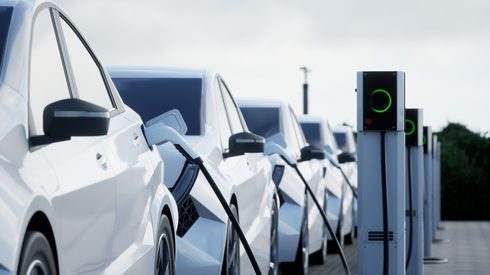As the EV market matures, strategic decisions in these areas become pivotal for sustained success.
Explore these challenges through a series of real-life scenarios and find out how Fastmarkets can help you navigate this competitive landscape.
Download the full ebook: Mastering the EV revolution
How do I secure my supply of battery materials for the future?
The foundation of EV production lies in the steady supply of essential battery materials such as lithium, cobalt, nickel and graphite. Ensuring a resilient supply chain is no longer just a matter of cost-effectiveness but a strategic imperative.
Businesses in the EV market must establish robust partnerships with suppliers, diversify sourcing channels and explore sustainable practices like recycling and reuse. With energy transition gaining momentum, long-term planning is critical to safeguard against potential material shortages or price volatility.
How do I know which battery chemistry would be most cost-effective?
The choice of battery chemistry is critical to the success of any EV venture. Manufacturers must carefully evaluate energy density, life cycle, safety and raw material costs to identify the most cost-effective solution. Collaboration with battery experts, staying abreast of technological advancements and continuous research and development efforts are essential.
By aligning their business strategies with cutting-edge battery technologies, companies in the EV market can not only optimize costs but also gain a competitive edge in terms of performance and efficiency.
How is the current price momentum affecting my margins?
Price fluctuations in battery materials directly impact the profit margins of businesses in the EV market.
Global economic shifts, geopolitical events and market trends contribute to uncertainties in cost structures. To address these challenges, companies must adopt agile pricing strategies, regularly reassess cost models and focus on operational efficiency.
A proactive approach to understanding and responding to price momentum is key to mitigating risks and ensuring sustainable profitability.
Turning challenges into opportunities
In the fast-paced and dynamic landscape of the EV market, securing a supply of battery materials, determining the right battery chemistry and navigating price momentum are critical considerations. Future-proofing your business involves strategic partnerships, continuous innovation and agile decision-making. By addressing these key challenges head-on, businesses in the EV market can not only survive but thrive in an industry that promises to shape the future.
Our ebook ‘Mastering the EV revolution’, provides a state of the market by exploring four key, real-life scenarios and how Fastmarkets can offer practical, intelligible solutions.







